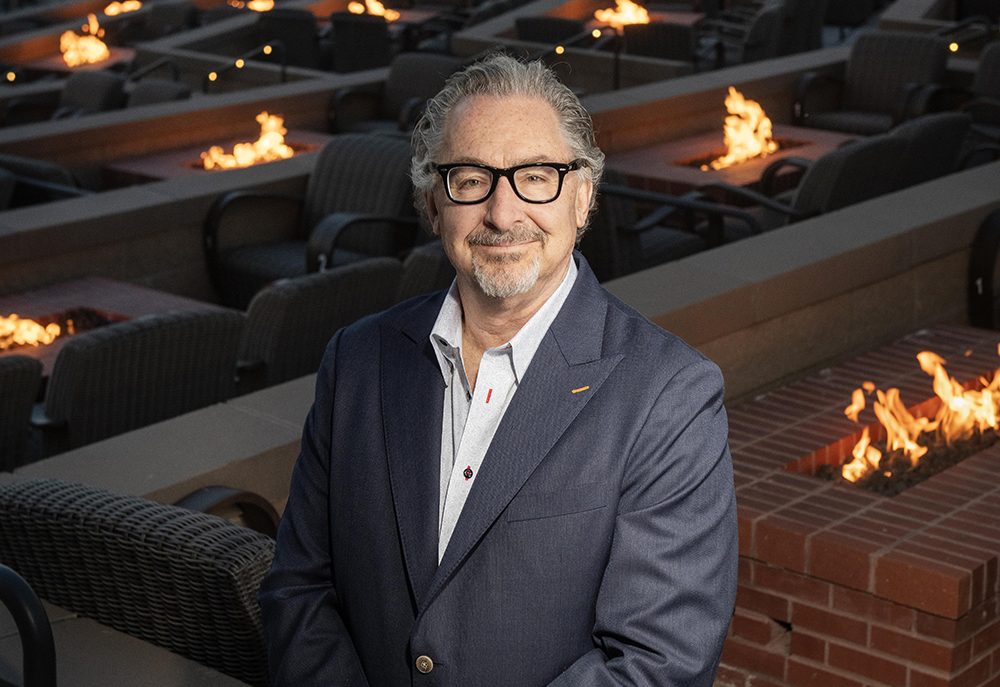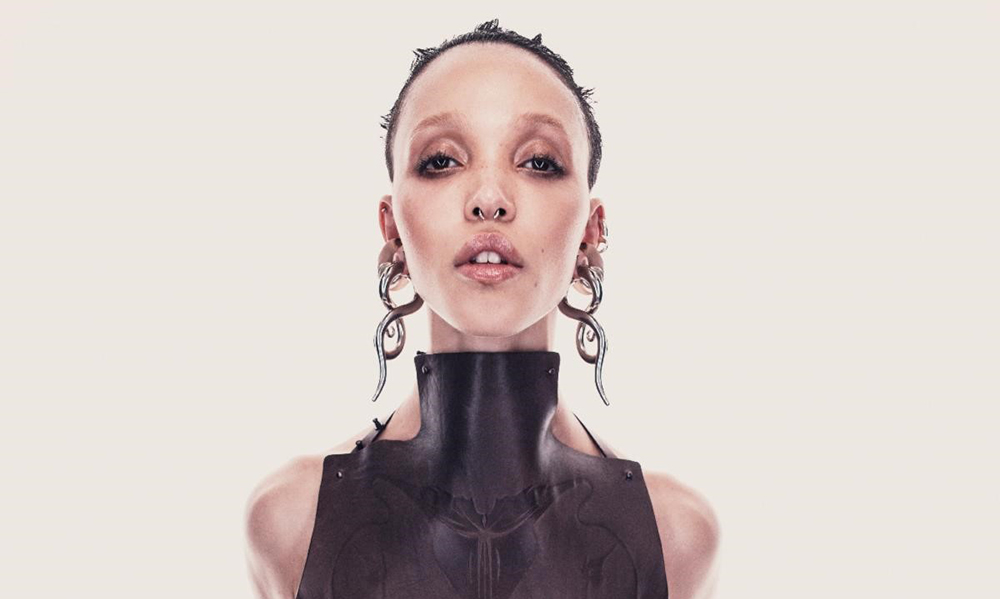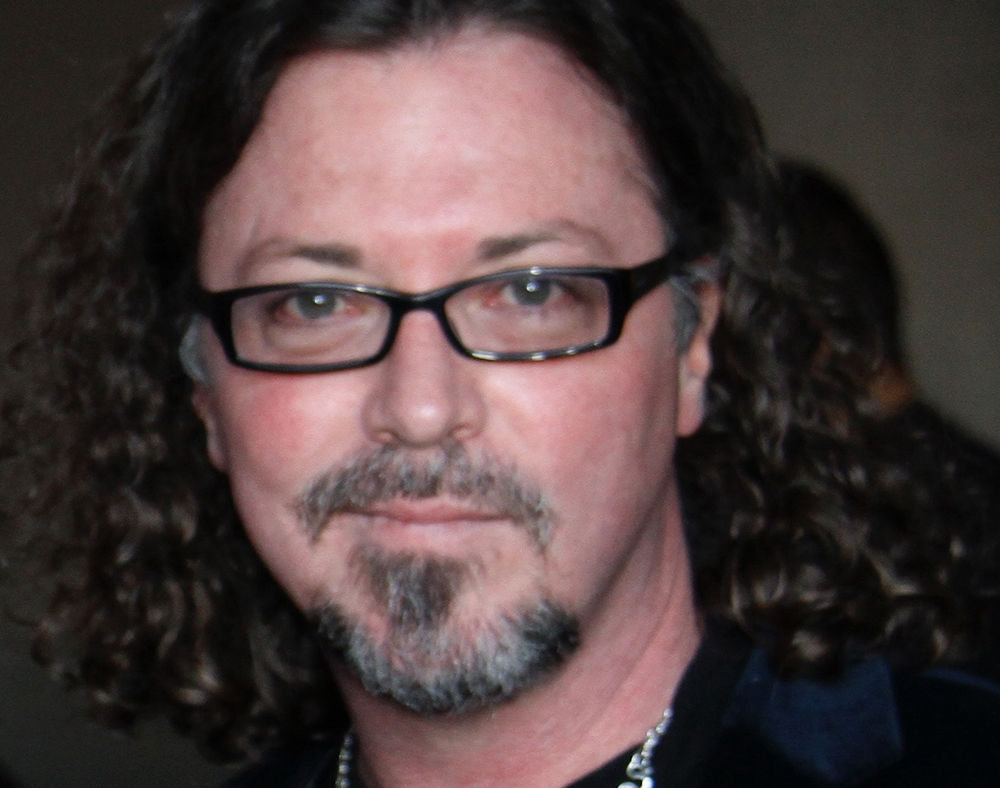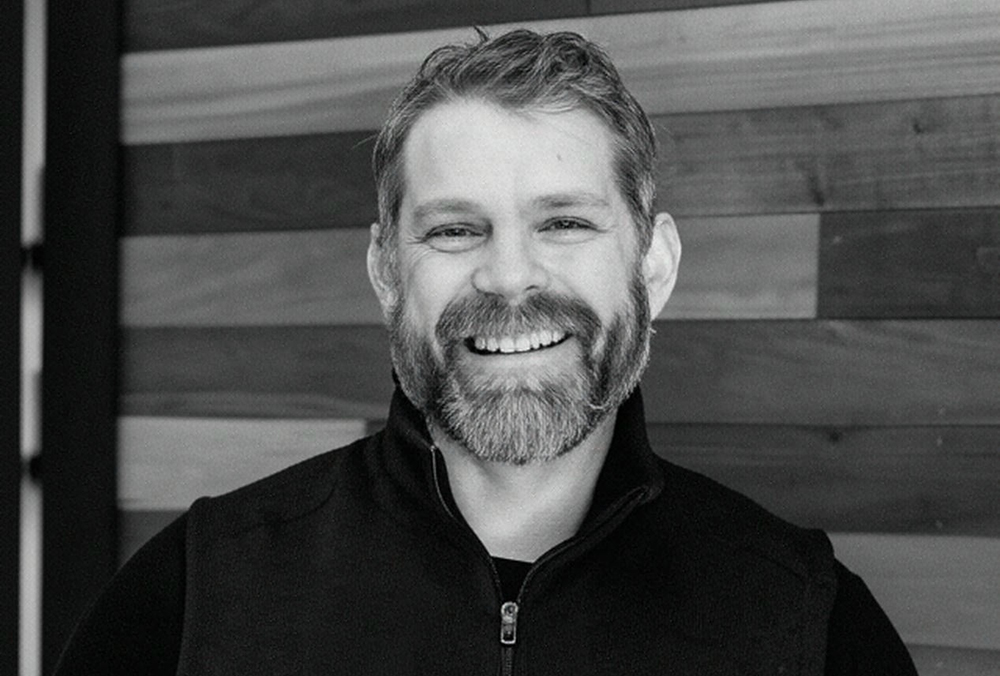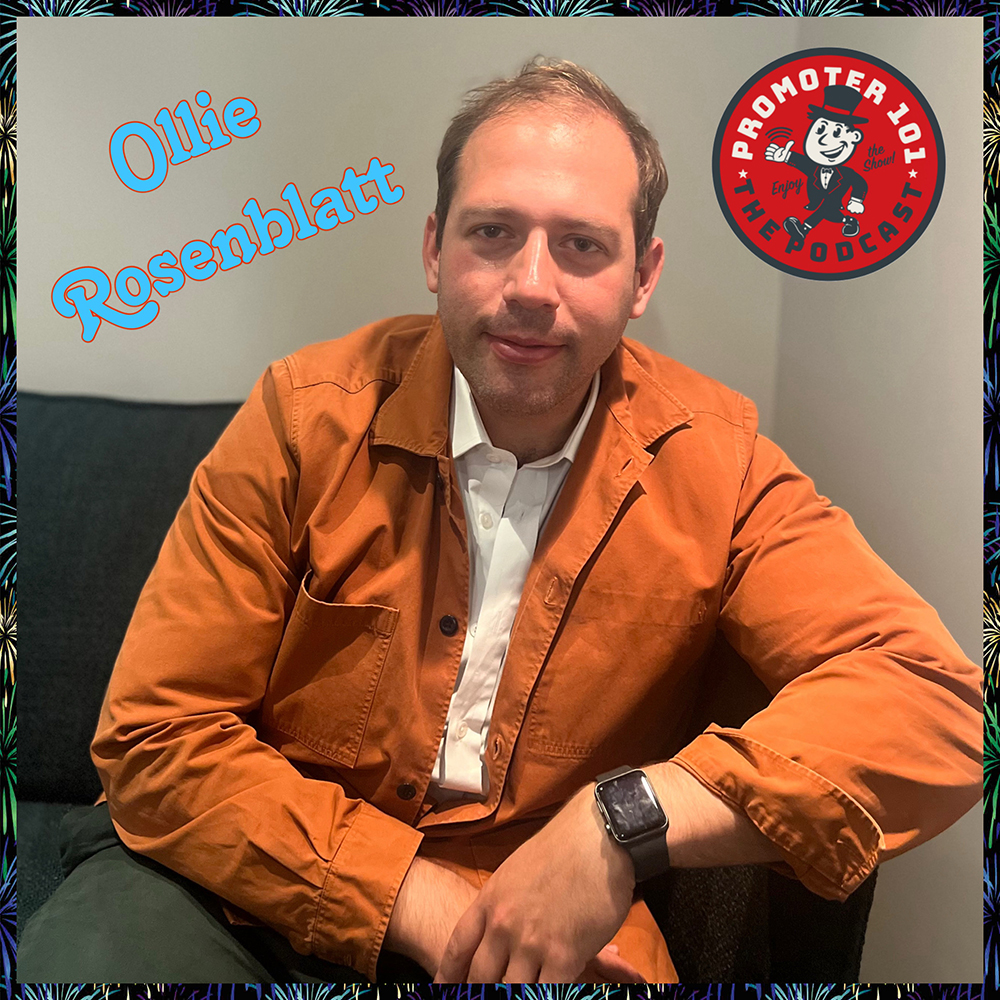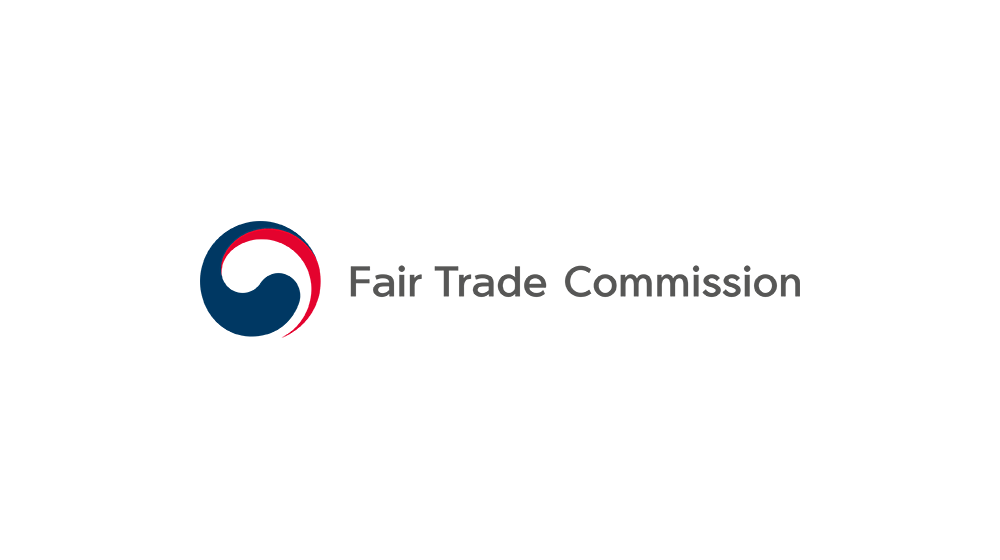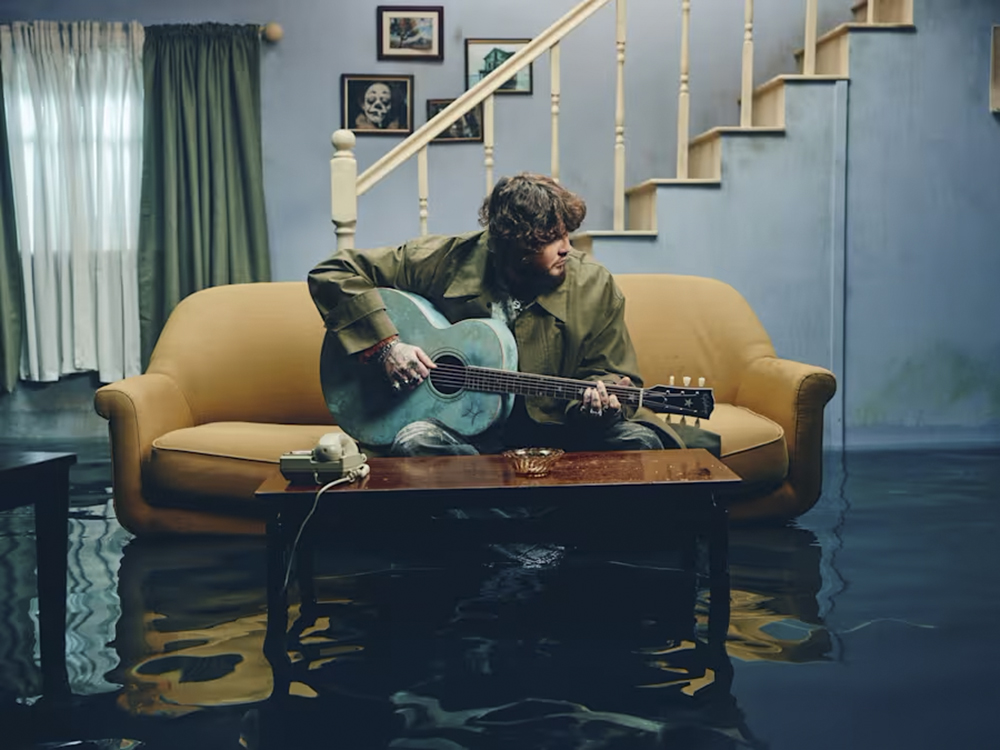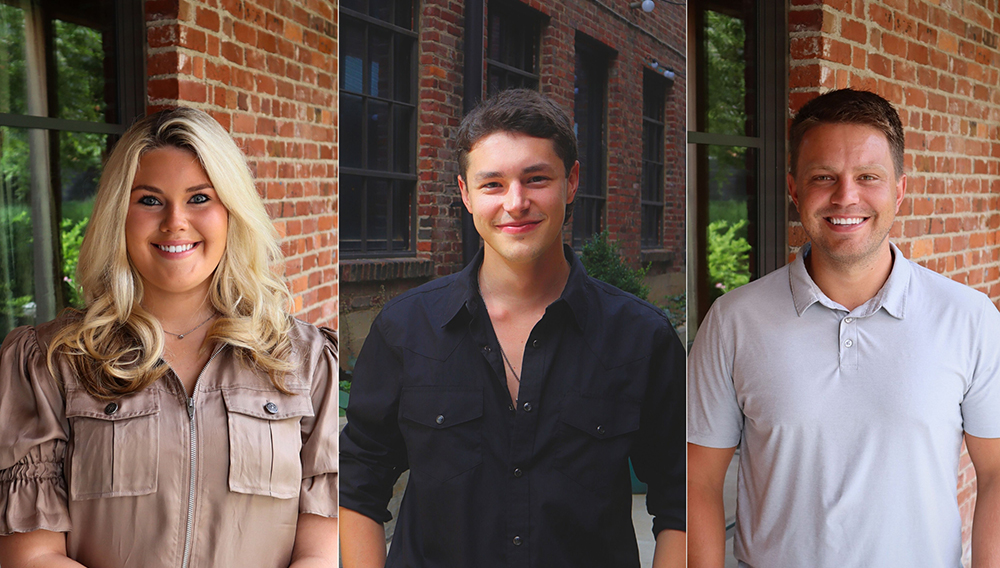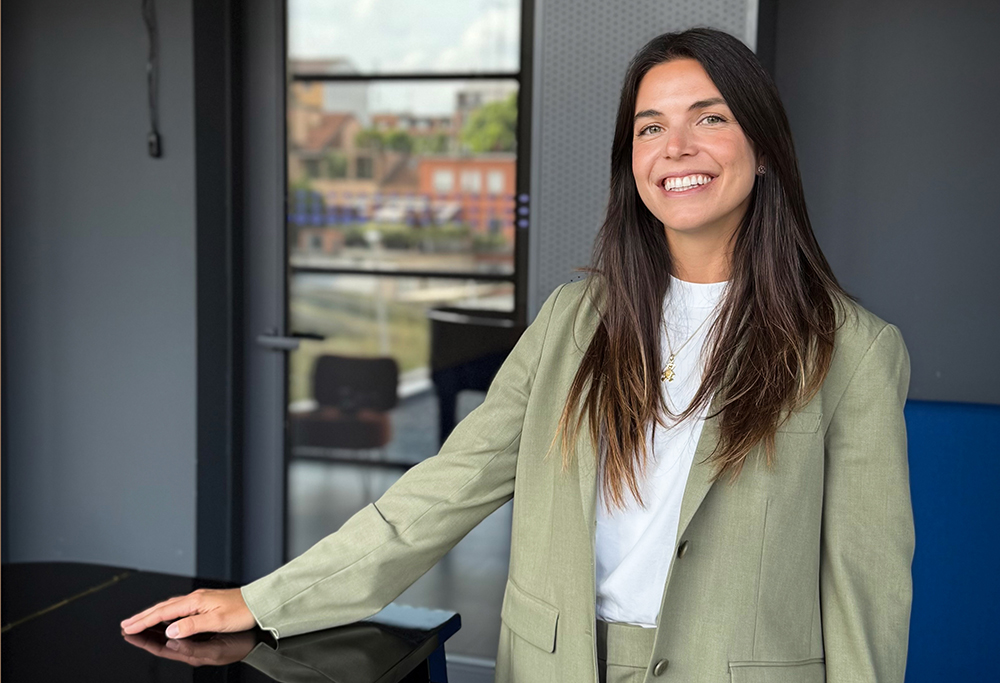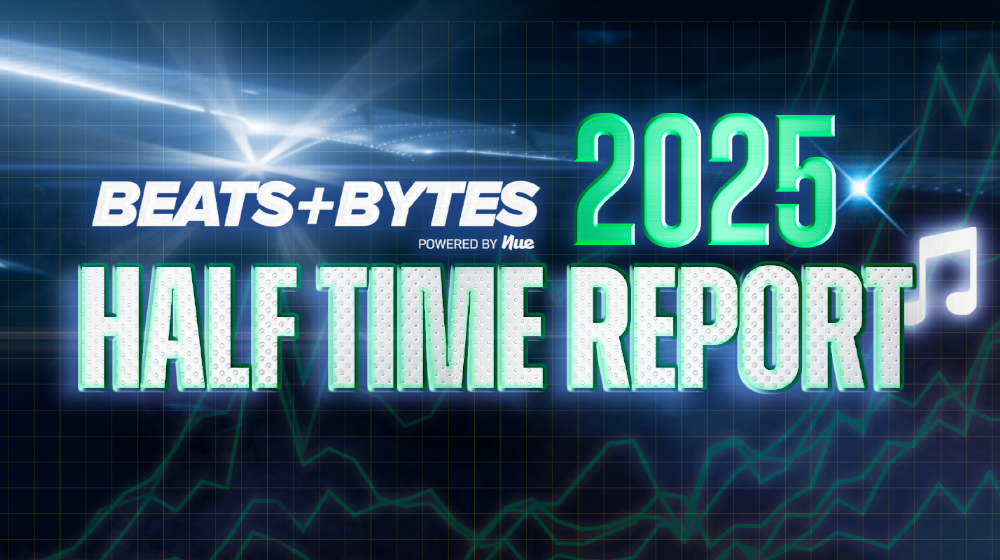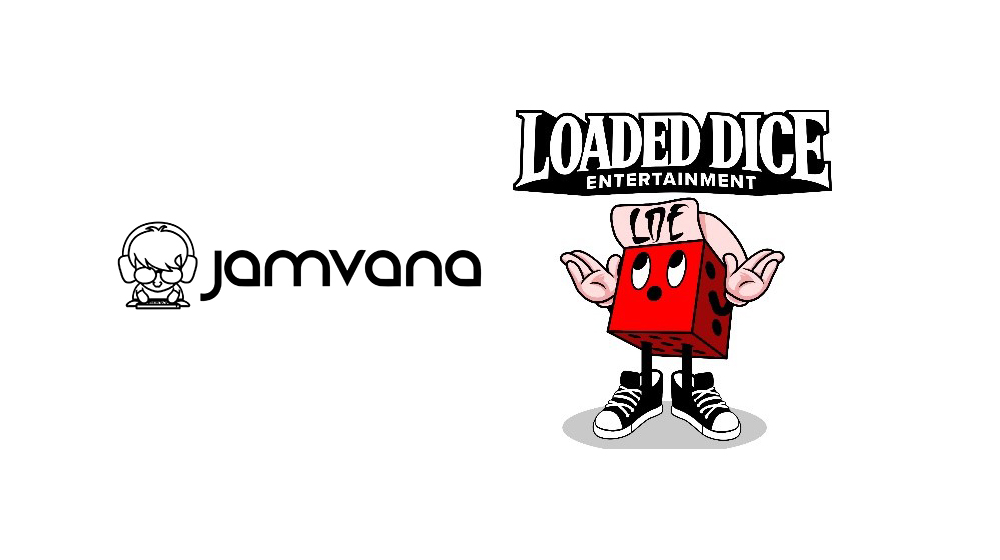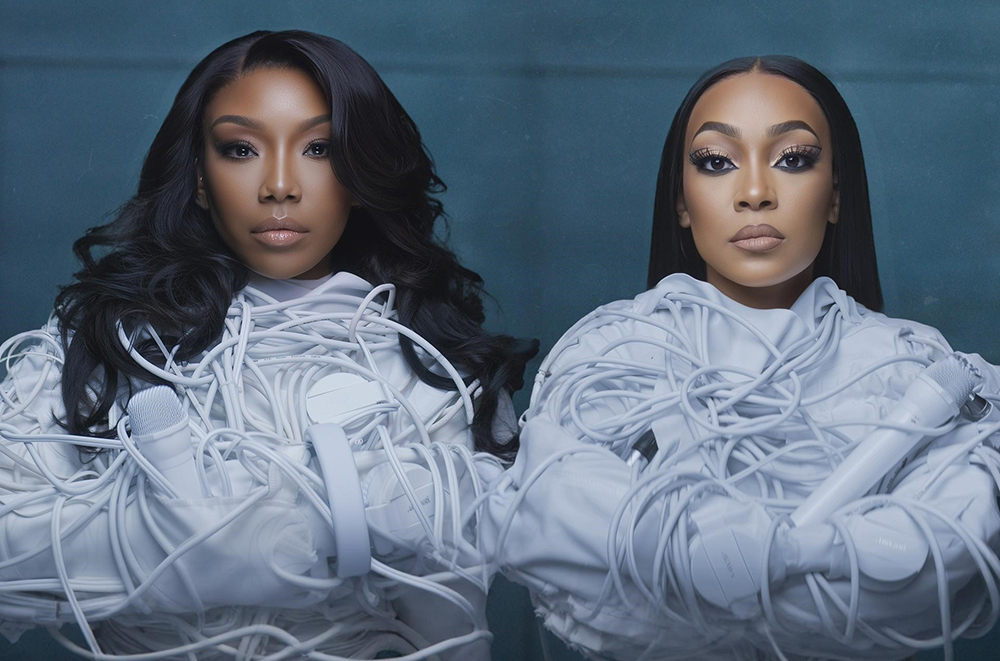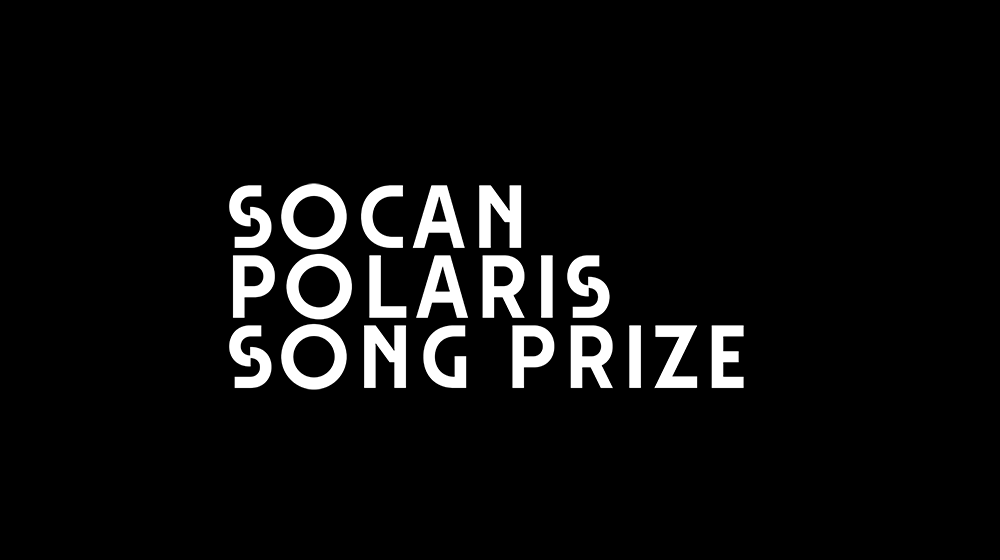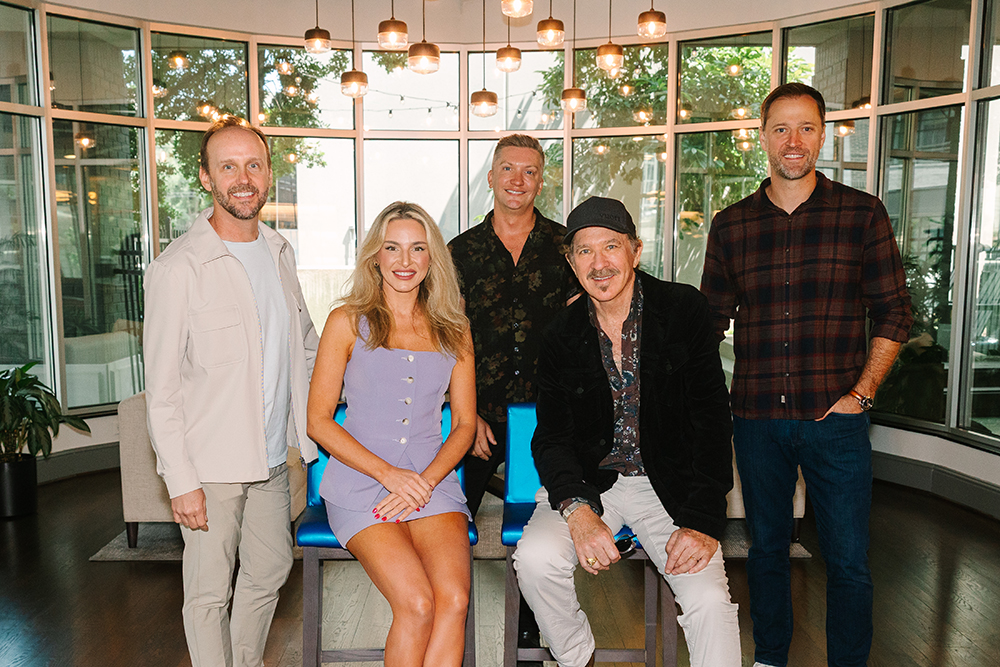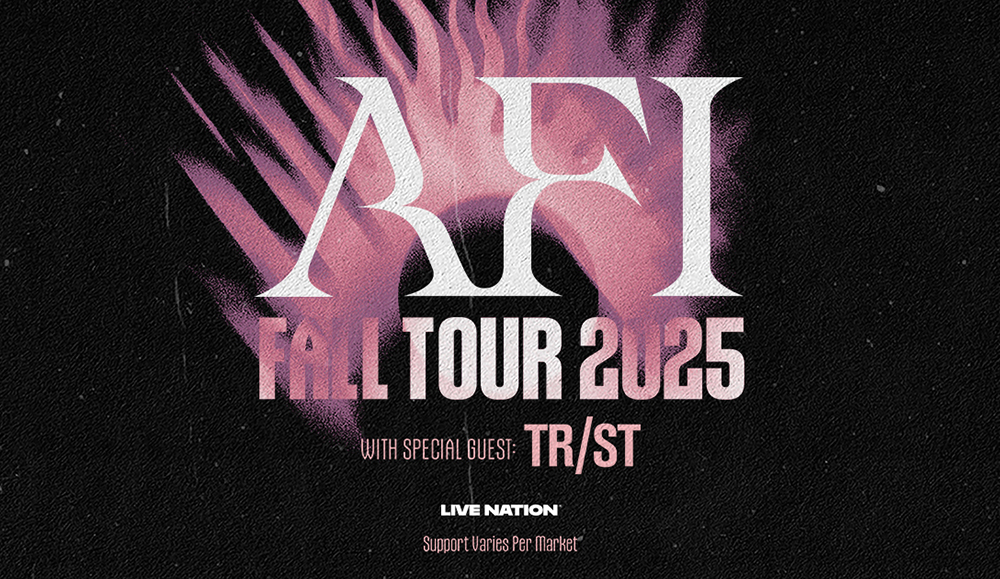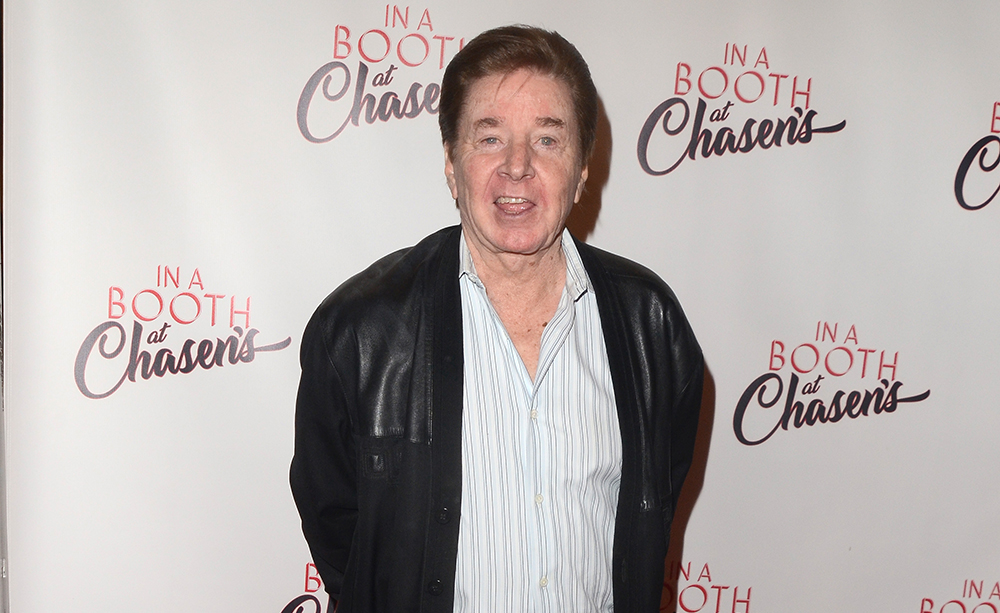This week In the Hot Seat with Larry LeBlanc: Alex Valenti, CEO, 3V Method.
Alex Valenti, co-founder of Los Angeles-based 3V Method, was recently named among Forbes’ 30 Under 30, 2022 under the category of music.
The 10th annual list “recognizes entrepreneurs and innovators who are reimagining business and entrepreneurship.”
Founded in 2020 by Valenti as CEO, and COO Matt Steger, 3V Method is a diversified entertainment, and media collective, devised to deliver maximum empowerment to its management teams, and to its artists and songwriters within a rapidly shifting music business.
Its label, management, and publishing companies are aligned in a way to foster growth by encouraging and assisting in far-reaching collaborations, and by building teams, and partnerships that can take advantage of opportunities across the full entertainment spectrum.
Under its management arm, for example, 3V’s model of shared economic participation allows managers to operate under the 3V collective—maintaining autonomy over their individual businesses—while incentivizing collective gains.
3V is intent in providing its songwriters with impressive creative and economic resources, and networking opportunities. 3V also seeks to facilitate catalog and portfolio sales, create imprints, and provide long-term collection infrastructures.
In December, 3V Method partnered with Sony Music Publishing to sign global publishing deals with its artists/songwriters Sean Leon and Erick Serna.
As well its label 3V Records is under the Virgin Music Label & Artist Services distribution umbrella.
Artists under Valenti’s own management roster include Peach Tree Rascals, NoMbe, CLAY, Jon Waltz, 9&YOU, and others. Valenti also works with the songwriters/producers Sean Leon, Gabe Reali, Ryan Raines, Erick Serna, BOYCO, and Lixa.
You connected with your partner COO Matt Steger at a Next Gen networking event a few years ago?
Next Gen started at my kitchen table when I was 18, and in college. It is a side networking event company that I started for young people to meet each other, and connect, with no pressure, and no strings attached.
When I was in college (at the University of Southern California) I realized that there were all of these networking events and that there was so much pressure. Everybody was going out of their way to impress each other. It was just like a huge ego-fest.
And I don’t subscribe to that.
The idea with Next Gen was we are going to get a bunch of people together over dinner, and talk about what we are working on, and discuss ways that we can work together. It started with a couple of people, and then right before the pandemic, we were having 200 to 300 people showing up to these huge bars in Hollywood. It was just a bunch of people hanging out, getting drinks, and getting to know each other with no pressure attached. Matt came to one of those events several years ago, and that is how we met. We then kept a really good relationship afterward. He had just been at Spotify, and over time, we both were itching to go, and build something from the bottom up. So it was just perfect timing. Two weeks before the pandemic, we were like, “Let’s do this.” So we built this over the last year and a half.
How much staff at 3V Method?
Right now, there’s 11 of us.
So 3V is working with 11 staffers in a model of shared economic participation that allows managers to operate under the 3V collective—while maintaining autonomy over their individual businesses—while incentivizing collective wins.
Yes. Matt is an amazing business executive. He knows so much about the legal and financial side of the industry. He and I have built a team underneath us of managers, and also people in the A&R and marketing side of things.
How has the company been financed?
I am self-funding all of this. Every dollar that comes in goes out to run the business.
Any family money invested?
My parents don’t help at all. I was really smart about the things that I invested in early on. I was a very active trader. I traded options in the stock market for many years before I got into music. I was able to make money from that, and also in the Web3 space, trading cryptocurrencies. So I invested a lot of the money, and I put that into the business. We are cash positive now, but for a while, we were just breaking even in getting all of the business structure together to start working, and figuring out ways to propel the company forward. So yeah, it’s 100% self-funded for now, and we are in the process of doing a bigger partnership that will relieve a lot of the overhead costs, and level us.
When you set up 3V Method with management, publishing, and label divisions, you also set up a venture fund. That’s an intriguing twist we rarely see.
It’s interesting how our business is working right now. We have been self-funding the label, and the publishing company for a period of time. What we have decided to do is to move into something a little more independent, where we can raise the fund with some strategic investors to fund our IPs (intellectual properties). I want to take the least amount of money possible from the majors so we can give our artists the most amount of rights possible, but also make sure that it is equitable for the company, and makes sense financially. So that is the best way to do this. We are just kicking that off. We are in the process of doing a raise right now for IP specifically.
Matt and I also believe in a diverse kind of business and finding different verticals of things going on in our ecosystem to be involved in to help grow our clients’ businesses. So whether it is starting a publishing company with our producer Donn Robb or a Web3 company with our client Sean Leon. There have been enough people around us that…I have a friend who started a sweets company, and he was looking for advisers in the music space, so I asked him to be on the board for that.
You and Matt are building a multidimensional entertainment entity.
We are just like, how can we tap into all of these things that we have around us, and do things that are outside of traditional management; whether it is IPs or a clothing business or getting into the Web3 space? We should find ways to do it, and bring our clients to those things, and give them the resources they need. Maybe, one day they will decide that they don’t want to write anymore, and they want to start a record label. We should be prepared to pivot to service them in that way.
You are both a business and a creative person which is rarer in the music industry than you might expect. Usually, people are one or the other. Not both at the same time. Are you able to function as both personas?
Definitely. I come from a musical background. I have perfect pitch. For as long as I can remember I have been able to play any instrument. But I was never an amazing writer, and that prevented me from doing the artist or the songwriter thing myself. My parents were in finance so I learned from an early age how to be firm, and to negotiate aggressively in a polite and cordial way. I went to school thinking I was going to be a music attorney, and I would get to use a little bit of both (music and business), but I realized it wasn’t what fulfilled me. I got the most enjoyment out of developing things, from both financial and business building perspectives, but creatively, management ended up being a mix of both.
You probably went through Tom King’s book “David Geffen: A biography of New Hollywood” (2000) with a yellow marker.
I actually have never read that book. I have been told to read it. I have read Donald Passman’s “All You Need to Know About the Music Business” book multiple times. Most of my lessons are from the book of hard knocks. Just figuring it out myself.
You directly oversee both artists and songwriters at 3V Method.
I jump around and do a little bit of everything. On the artist side, Peach Tree Rascals is mine, and I also work with NoMbe who is an alternative pop artist based out of Hawaii. Then on the developing side, I have a few acts like 19&YOU who is also signed to our label, and CLAY who is an act from San Francisco in more of the R&B pop space. Then I have Sean Leon who sits between the different worlds. He’s an artist, but also a writer and a producer. And then my writer-producer roster is pretty large but to name a couple I’ve got the BOYCO guys, Gabe Reali, Ryan Raines, and Erick Serna.
Do you have an assistant?
I have an assistant Ruchi, who is also the manager for Simone Torres. Ruchi went to USC as well, right after I graduated. I have been trying to mentor her the best that I can. She absolutely crushes it, and she is really learning how to develop her ear, and be an amazing businesswoman. I really believe in mentoring young females on the management side because there are so few of us.
Have you had many mentors?
I have had a lot of mentors. I’ve been really lucky. I’ve had a lot of people who looked out for me in my career like Jacqueline (Saturn) at Virgin Music (Artist & Label Services president), or Debbie White, who is an amazing attorney (as a partner at Loeb & Loeb LLP). I have had a lot of people looking out for me, and helping me stay grounded along the way. It is really hard to find people a little older than me that see the value of giving back because they had a hard time themselves But I believe that we need more female managers, and we need to give more people opportunities that wouldn’t get opportunities, normally. Our first three hires were all females of color, and I think that it is really important to have that diversity.
Who is the company’s A&R street person? Josh Deane, VP of A&R?
Josh came from Interscope. He spearheads all things in artist development. He’s incredible. He’s like a real record major (executive). He came up under Sam Riback (Interscope Geffen A&M’s Co-Head of A&R) at Interscope. He sits in the studio with artists for hours and hours until we figure out the right way to connect stories to the records. He also constantly brings things to the table on the discovery side for management, for records, or for publishing.
Next, Travis Alexander is VP of Strategic Partnership.
Travis spearheads marketing and branding. Everything from the sync side of things to funding new soundtracks for opportunities where we can music supervise films, and plug our artists into brands. Peachtree recently did a partnership with Med Men. We’ve done things with Crocs. Just doing different things to further help with the storytelling.
In December, 3V Method partnered with Sony Music Publishing to sign global publishing deals with its artists/songwriters Sean Leon and Erick Serna.
Toronto-based creative, singer-songwriter, and producer Sean Leon has earned acclaim for his own work while writing the bulk of Daniel Caesar’s “Case Study 01” album in 2019.
Leon scored a Billboard Hot 100 #1 hit as a writer on Justin Bieber’s “Peaches,” featuring Caesar and Giveon; and he worked on Kanye West’s 2019 Grammy-award winning album, “Jesus Is King.” Since 2010, Leon has overseen PUPIL a creation/production company that focuses on amplifying black voices, and stories.
Los Angeles-based producer, multi-instrumentalist, songwriter, and mixer Erick Serna signed his global deal in partnership with longtime friend, mentor, and collaborator, songwriter, and producer Jesse Shatkin. He is also known for his collaborations with prominent songwriter and producer Dan Nigro, Serna has also co-written with DNCE, Sia, Kelly Clarkson, and others. In addition, Serna has been a featured instrumentalist on Olivia Rodrigo tracks, among others; while also overseeing a successful sync catalog for film, television, and commercial work.
You get to have Sony Music Publishing’s Katie Welle (SVP Creative) and Will Skalmoski (Senior Manager, A&R) as key members of this team.
Katie Welle is amazing. Will, I have known for a while. We are trying to find things to work on together, and Sean was one of the things that came up through that. They publish Sean, and I manage him. We are also exploring doing things together under Sony with Sean. Finding things because Sean discovered and developed Daniel Caesar right from the beginning. He has an amazing ear.
3V publishes Peach Tree Rascals. Why didn’t you put them under a similar deal with Sony Music Publishing?
Our publishing company is non-exclusive. We don’t go through one company specifically because I believe we do most of the development in-house, and it is important to have a foundation before you partner with a bigger publisher. We have some deals with Sentric Music. Some we are doing with Sony. We are looking at being nonspecific because the creative services at each of the publishers offer different things. It just depends on the client, and what they need.
As well, you connected 3V Records with Virgin Music Label & Artist Services.
Exactly. Peach Tree runs through them with their label 10, and our label runs through them separately. It’s wonderful working with Jacqueline Saturn.
Peach Tree Rascals was one of the first examples of TikTok generating real success for a music act with its 2019 track “Mariposa” at a time so many music industry people were skeptical of TikTok. Though they continue to remain skeptical, most have come around to making use of TikTok.
Oh,100%.
Cell phone technology has so changed our lives. We carry the equivalent of a computer with us in a cellphone now. Little wonder that TikTok skews young to an audience that isn’t watching the Grammys.
Yeah, it’s crazy. It’s almost overwhelming how much information we have access to. All of these kids that are on the cutting edge making the next cultural impact. “What is the new sound?” And what is the best way to storytell is always around me. And that has always been the way that I approach management, and building things; whether it’s from the writer producer side or the artist side.
How can we tell the best story?
With Peach Tree, we never went into their project thinking that it was going to move on TikTok. What happened was that a trend that was picked up stemmed from this ethos around family, and coming back. The guys made a TikTok one day about what that was like. “We’re the Peach Tree Rascals. We are 5 guys from San Jose, California. We are first-gen immigrants. We are making music out of a shed in our backyard. So what‘s your story?”
It became this trend.
It wasn’t like one particular dance or movement. It was all of these kids making TikToks of, “Hey, I’m this person. I’m from Sweden” or “I am from Thailand” or “I am from Brazil, and this is my story.”
A very organic way to market an unique story.
It was kind of amazing because it shows that new people are always chasing the next trend or whatever but, at the end of the day, it always comes from the story behind the trend, and what can you do to make yourself stand out? That’s been our ethos; particularly, because they (Peach Tree Rascals) had this huge moment on TikTok, and with the pandemic, they weren’t able to tour with it afterward.
And now it’s, “How do we go back to square one, and rebuild this, and make people understand the story of who these guys are?” Because they are totally different. They don’t come from the same background that all of these other bands that are popular right now come from. They are guys that don’t come from that much; that are hustlers; that have put their 10,000 hours in, and they are literally making music out of a shed in their backyard.
“Mariposa” came from a shed in their backyard, “Mariposa” came from a session that they did, 10 hours one day that they just played on the guitar, and figured out how to produce it. These are people that have a really interesting story which is what compelled me to work with them. Sometimes when you have people with the right attitude, and the right story, the music will come, and if people don’t catch onto it right away, they will because they will buy into the culture of it.
TikTok had its roots in Musical.ly which was a meme repository, and hangout spot for teens until 2016 when the Chinese tech giant ByteDance started TikTok, a video-sharing social networking service under the name Douyin, that merged with Musical.ly in 2017.
TikTok is now the most downloaded app in the world. The social media app was downloaded more than 176 million times since the start of 2022, making TikTok the fifth app to reach over 3.5 billion total downloads, according to a report released this month by analytics firm Sensor Tower. No other app has had more total downloads than TikTok since the start of 2018.
Nevertheless, despite its immense reach, I believe that TikTok’s origin was organic.
I think so too. The thing that made it shift more than anything was when it became this capitalist play. You had to pay people to post your songs and start a fabricated trend that was a story or whatever to get a record moving. Sometimes the most successful records on TikTok started from an organic thing.
What’s been really tough, especially as an artist manager, something that is really important to me, is that everything else that surrounds the artist. The last thing I look at is TikTok because you don’t have to use it to break a record. You use it in so many other ways. Unfortunately, if you talk to other managers of my generation and labels, they don’t have any interest in working with you if you don’t have a moment on TikTok. What they don’t realize, and I think eventually people will go back to realize, is that if all of the other boxes around the project tick off: The story and the music are good; they are hard workers; they can sell tickets; and there’s a brand, you can use all that to tell a story on TikTok in a more genuine way than putting 10 grand behind a record, and then seeing what it does.
I think of this artist CLAY that I have been working with. She has an amazing story, and she has all of these things going on around her, like a charity she runs, and a production company. She’s in a wide circle of people like Finneas, Alessia Cara, and all of these bubbling acts.
I remember CLAY’s provocative 2019 EP “Hues” with the track “Orange,” inspired by former President Donald Trump.
She uses TikTok as a way to access her fans, and to get into the community which is a lot of queer kids in Los Angeles. All of the viral moments around her have been engaging those people, and not around the songs. She is still streaming to 800,000 monthly listeners.
I went and did the label launch in New York a few weeks ago, and everybody is like, “What’s going on with TikTok?” It’s not, “Oh wow, all of these other things are happening around this.” Like TikTok will come which is kind of backward too.
Again, that’s people not understanding the true nature of TikTok as a specific tool in the toolbox.
Yeah, I think it’s that. If you look at all of the things that have broken on TikTok recently a lot of them are not career artists. They will have a song or a moment but they can’t translate it so it sells or creates a fan base or anything like that, and that is the shortfall. People just want the market share. They don’t want a huge traditional artist development or look at all of the other things to take back and tell a story on TikTok the right organic way.
In so many ways, TikTok has become a mini-“American Idol.”
Yeah, exactly.
It’s a creator saying “I can have my own moment when people think I’m wonderful.” I’ll scan TikTok, and think, “Oh, this is cute or interesting.” But I’m more likely to dig deeper on YouTube or Spotify where I will see some artist moments, and where I can then drill down, and see what else the artist has. I try to explore the whole world of music discovery as much as I can including word-of-mouth which remains a powerful discovery source.
I appreciate that especially hearing from a consumer. I think that a lot of people are starting to re-approach things in that way too. From a 360 perspective as opposed to just what is happening on the internet.
Where do you think the music industry is at these days? We’ve gone through a sizeable technology shift. There is now a generation of creative young tech people deeply involved in the ecosystem of music that now includes the fast-growing Web3 universe of NFTs, blockchain, cryptocurrency, and the metaverse.
Where do we go now?
There’s going to be a lot more happening in the Web3 space, specifically in regards to metaverses, and how metaverses and NFTs work together with each other, and also cryptocurrency, and how all that aligns. More artists are going to be launching their music on various Web3 platforms, and there are going to be a lot of issues, and adjustments on the major label side in how they get compensated for that. I did see recently in a record agreement that, “We are protected in all universes, the known universe, and metaverse.”
The music experience is expanding to NFTs, and while artists may see that as delivering them empowerment within a rapidly shifting business, the multinationals see it as a digital merchandise play; a world to monetize while having ownership at the top of the consumer’s access point.
As Michael Nash, Executive VP of Digital Strategy of Universal Music Group said recently, “You can think of Web3 and NFTs as kind of the tip of the technological spear of our overall e-commerce strategy with our artist roster.”
Warner Music Group (WMG) recently partnered with the New York-based digital collectibles platform Blockparty, marking the firm’s first major label partnership. Last year WMG also struck an NFT-related global partnership with Genies, which dubs itself “the world’s largest avatar technology company”; and two years ago, WMG joined an $11 million investment round in the blockchain firm Dapper Labs.
In March WMG, IDEO, 4 Good Ventures, and existing investor Metaplanet Holdings invested a further $14.4 million in LifeScore, an AI music technology company that offers a platform for music adapted to the context, and needs of the listener. This brings the total funding raised by the company to $15.5 million.
WMG has also teamed with the multi-chain NFT platform OneOf, as well as with Overwolf that lets creators build, distribute, and monetize in-game apps.
I don’t think that anyone is taking the time to learn to take this step by step, slowly. It’s not something that you can just jump into, and figure out. It’s a lot of research and understanding the crypto market, and how that plays into the success of things. It’s about taking a few platforms, and finding ways to work with those platforms in some capacity; whether it is funding a metaverse or giving them ownership of music to fund the metaverse. It’s the Wild West right now, and I am really excited about that.
Then there’s the gaming sector which, due to COVID and other factors, has expanded at a dizzying rate, becoming equally as important as music, and film in our culture today.
WMG recently entered into a partnership with blockchain gaming developer Splinterlands, and the two companies will now collaborate to give select WMG artists opportunities to create and develop play-to-earn (P2E), arcade-style blockchain music-themed games in the metaverse. There’s possibly a substantial door being opened for artists.
Yes, 100%. People are smart getting behind it right now. In a couple of months from now people are going to be really trying to figure it out and scrambling to get into it. Now is the best time to get involved
Interestingly a lot of emerging artists, and even some bigger name artists today, are unknown to wide segments of the population. We are awash in new artists with 60,000 songs being put up on Spotify annually.
Artists come and go.
One drawback is that music isn’t readily available anymore as a physical product. Consumers don’t have something physical to hold in their hands at home in order to read the liner notes and to play repeatedly on their own time. Nor is music being aired in high rotation at two or three radio stations in each city as in the past. Today, tracks seem to be in the Top 10 for a few minutes, and then virtually disappear. People know the song if it gets enough media coverage, but many times you are asking, “Who’s that?”
Yep, 100%. It’s a very weird time. There is just so much. How do you rise above the noise?
Back in the day, you didn’t have to go searching because you heard the music played in repetition on AM and FM radio, in gyms, at the mall. There were usually three radio stations in each major city that just pounded the daylights out of popular music selections. Today few people listen to commercial radio.
Yeah, definitely. It is hard to find the people who go searching for new music instead of finding what is just popular.
And contrary to some critics, there is so much pop, hip-hop, country, and dance music out there that is good.
Yeah, 100%. There are kids out there for music discovery, but they are harder to come by, and they are not looking at the things that are really, really niché.
You are from Boston?
Yeah, I’m from Boston. I lived an hour outside the city. I’m from the North Shore. So if you know where Gloucester, and Beverly are. I am from a real small town called Manchester-by-the-Sea.
Scenes in the 2016 film “Manchester By The Sea” were filmed in Manchester-by-the-Sea, and at North Shore locations in Beverly, Essex, Gloucester, Swampscott, Lynn, Middleton, Tewksbury, and Salem.
The film is an emotionally charged portrait of a tightly knit community that depends mainly on one industry, fishing.
It’s gorgeous there. It is honestly one of the most beautiful places in the world. But you can’t be there, and be in music. It’s a very tough place to live. There is a very vibrant music community on the North Shore, amazing guitar players, and a couple of songwriters that play on the local circuit, but it is very tough to break out of that unless you are involved with the Berklee College of Music scene.
Of course, there’s Cambridge nearby with such music venues as Club Passim, The Sinclair, Lizard Lounge, and the Sanders Theatre. For five decades, The Grog has been a neighborhood institution in Newburyport, and Opus is a cool bar with music in Salem.
Several of the greatest record stores in the world are in Boston including Newbury Comics, In Your Ear Records, and Nuggets.
I am a big record collector. I have hundreds of records that I have been collecting since I was in high school.
I’d spend $300 in Newbury Comics in Cambridge.
Oh, that’s hilarious. I absolutely love Newbury Comics. That was my favorite store when I was growing up. It is such a cool cultural spot in the city. There’s one on Newbury Street.
That’s the original store which opened in 1981 near Harvard Square and Berklee College of Music is two blocks away.
I went there quite a bit.
Newbury Comics is an iconic New England retail chain. Over the years, a number of bands, including Nirvana, Godsmack, Radiohead, and Beastie Boys, have credited Newbury Comics in kicking off their careers. Its 30 stores are filled with new and used music product as well as DVDs, books, clothing, shoes, comics, posters, T-shirts, action figures, sports merchandise, and other pop culture-related goods.
Interestingly, I saw entire families shopping at Newbury Comics, two parents and a couple of young kids or teenagers. Everyone walking out with a purchase. You never saw that at other music retail outlets.
Definitely. It is one of those places that has kind of a little bit of everything for everyone.
You attended the University of Southern California in Los Angeles. You were a student at USC Annenberg School for Communication and Journalism; USC Marshall School of Business; and USC Thornton School of Music.
Why all three USC schools?
I slipped between the three because they each had different things to offer that were amazing; whether it was the networking in the music classes or learning how to be a better public speaker or learning how to do accounting. I wanted to learn to do all of those things because I knew that it would make me a better candidate for a job in music. The deal I made with my parents was, “You go to school, and you get a job right out of school, or you are coming back to Massachusetts,” and that was not an option for me. So i was always hustling in any way that I could, whether it was through seeking information or knowledge; just trying to position myself to be in the best spot when I graduated.
How did you convince your parents to let you move to California to attend school at USC?
They very much did not want me to go to USC. I knew the only way that I was going to get in was through the music school, and there was an audition process involved. I got the email that I got the audition, and I told my mom, “Look, I’m doing this.” She was like, “No, you are not.” I bought a plane ticket, a friend dropped me off to the airport, got on a plane, and flew out there. I was 16 or 17. I called my mom from there. “I’m here. I’m auditioning. I am doing this.” She went crazy, but it was totally worth it. I was always very independent in that way. I knew that I needed to step out of my comfort zone, and what was comfortable for me being in Massachusetts, to get to the next level.
I auditioned, and I was so nervous. I got right off the plane, and went right to school, did that, and ended up getting in. Yeah, it was a crazy ride, and I think that my parents were just shocked that I had the conviction to go and figure that out myself. Then they were like, “Okay, you earned this. You figured it out, and you need to keep your GPA (Grade Point Average) up, and we will support you being here. You do everything that you can to get a job out of college. That’s the goal. So they ended up being very supportive. I was very lucky in that way.
Small towns can be suffocating for teenagers. It’s like, “I need to do things on my own.”
Oh, 100%. I went to a public school with about 100 people. All white kids. It was really hard when I was just trying to find a place in the world, and everyone is the same. What I loved about USC was that it was very diverse. People came from around the world. From totally different socio-economic classes. That’s what I wanted. Just to be around people with different experiences. I am a very big storyteller and believer in telling stories. I feel that when you grow up around the same things for a long time, doing the same thing over and over again, how do you get out of that? High school was not for me. Honestly, I struggled in high school. I went through the motions. When I got to college, it was the polar opposite. I was just a product of being in the right environment, being excited about the diverse people I was with, and what I was learning.
While at USC Thornton, you were within a young creative community including such artists as Phoebe Bridgers, Wallows, Alec Benjamin, BAUM, and Remi Wolf. You became a go-to person for information on artist development, music-related social media, and new music technology.
I never managed those people. It was more that I was in a community with all of these people that were really successful. Like, I was recently with King Princess’ manager. She was a year below me (at USC Thornton). Remi Wolf was a year below me.
As a student, you interned at a formidable blend of entertainment companies; labels, a publisher, and law and tech firms. This included Warner Music Group, Universal Music Group, BMG Music Publishing, AGMB Law, NBC Universal, and Level Two Tech which led to you have more of an understanding of the music business.
I did that internationally. Just to learn as much as possible. It was all about understanding all of the different pieces of the music industry; whether it was interning at a marketing department, a label, with an executive or a publishing company, and even a law firm. It really brought me into all of the different perspectives around music. It was so helpful because when I did manage when I was a sophomore junior, I was able to better understand what was going on, and have conversations with (industry) people. I didn’t understand 100% what was going on, but I had enough of an education that I could jump in, and start figuring it out as I went.
At the same time, the industry’s paradigm was shifting with the consolidations of labels, publishing, the live music sector, and media companies that led to massive layoffs.
Cutbacks at labels forced managers to staff up. Suddenly, they were able to maintain in-house marketing and radio teams whereas they relied more on label resources previously, The record companies became best as distribution pipelines.
Definitely. Managers are at the helm of doing everything 110% and assuming that nobody else is going to get the job done. That’s really what their job is; whether it’s being the A&R, the tour manager, the brand consultant, or sometimes even being the therapist. You have to do all those things, and be capable of doing all of those things because you just can’t assume that anyone else is going to step in and get it done.
A manager’s boots are big boots.
People don’t realize how much pressure falls on the manager. It’s a really difficult job. In order to be a successful manager, you have to be able to multi-task. You have to have the knowledge of a bit of everything, and take the time to learn from the people before you. Not only the good things that they have done but also the things that they messed up on because we are all figuring it out. I can’t even tell you how many people I know, and myself included, that had a thing that was moving, and we then made a mistake, and we lost a client. How do you learn from that and reposition so next time you don’t do it again? And you then do it better. That is part of this job. Being agile. Being able to jump in, learn from your artists, learn from the people around you, and learn from the community. It is so important.
You couldn’t learn from a better set of people than the Direct Management Group which you aligned your roster with at the end of your junior year of college.
Martin Kirkup, and Steve Jensen I know well.
Their first clients were Boy Meets Girl, and Nell Carter. Then came the Orchestral Manoeuvres in the Dark, Bryan Ferry, Echo and the Bunnymen, the B-52s, Counting Crows, k.d. lang, the Gabe Dixon Band, Loggins and Messina, Steve Perry, Ferras, and Au/Ra.
The Direct guys are some of my favorite people. They took a chance on me. I was looking after a couple of different artists and writers and producers and they were like, “You should just come here and learn from us for a couple of years, and you will figure it out. Whether it was just sitting there and watching everything that was going on on a day to day basis or helping with some of the stuff that Katy Perry was doing while she was launching her label (Metamorphosis Music later renamed Unsub Records), and just learning about touring, and learning what Bradford (Cobb) thought was a good record for Katy, and why it was a good record. These were things that I absorbed being there.
The one thing about the Direct guys, which is so admirable, is that these are people of good character, and of their word. They will pass up on an opportunity if it doesn’t subscribe to the ethos of who they are, and what their artist stands for. I think that is a lesson that sometimes gets lost.
Bradford joined Direct in 1997 and went on to sign the Go-Gos and Katy Perry.
Bradford is the best. Hilariously, I just started working with Michael J. Woodard who signed to Katy’s label. So we have started working together again which is really exciting. He’s an amazing R&B artist. He was an “American Idol” kid. We started working together pretty recently. So I am pretty in the trenches with him. I am just figuring out what the next step is, and how to position him away from the “Idol” stuff while also utilizing all of the amazing resources that the Direct guys and Katy have at their fingertips to help get him to the next step.
So we have been trying to get some records for him, and I am really excited to meet with them in a few weeks, and be on the other side of the table, so to speak. It will feel very weird for me to be presenting them with something instead of being on their team. I am really excited and looking forward to that. They are just great people, and I’m super grateful that I get to work with them in a new capacity.
Michael J. Woodard made it to the Top 5 on “American Idol” Season #16 in 2018 — the first season on ABC-TV with Katy Perry as a judge. He is the third artist signed to the label with Cyn and Ferras.
You worked with Katy on some of her IP stuff when she launched her label?
Yes. They had a couple of acts signed through Katy’s venture with what is now Virgin. So Cyn, and Ferra. I just jumped in and learned how an independent company operates. It was an incredible learning experience. Whether it was helping Lauren Glucksman, who is now at Apple, with trying to figure out how to crack the code with DSPs or helping on the sync side of things. I was able to take that information and experience for when we launched our label a couple of months ago.
You didn’t attend this year’s Grammys.
I didn’t. We had 13 nominations this year, all on the writer/producer side, and they were on records that didn’t win. I’ll be there next year for sure.
Larry LeBlanc is widely recognized as one of the leading music industry journalists in the world. Before joining CelebrityAccess in 2008 as senior editor, he was the Canadian bureau chief of Billboard from 1991-2007 and Canadian editor of Record World from 1970-80. He was also a co-founder of the late Canadian music trade, The Record.
He has been quoted on music industry issues in hundreds of publications including Time, Forbes, and the London Times. He is a co-author of the book “Music From Far And Wide,” and a Lifetime Member of the Songwriters Hall of Fame.
He is the recipient of the 2013 Walt Grealis Special Achievement Award, recognizing individuals who have made an impact on the Canadian music industry.


































